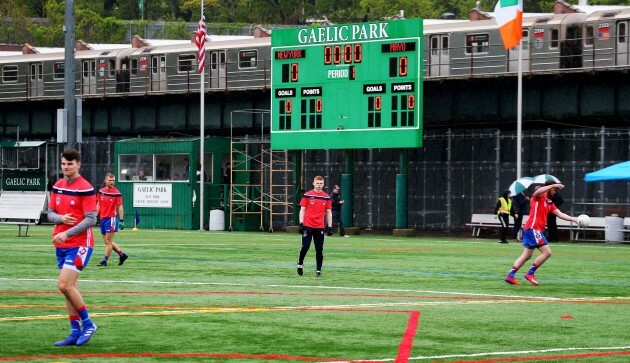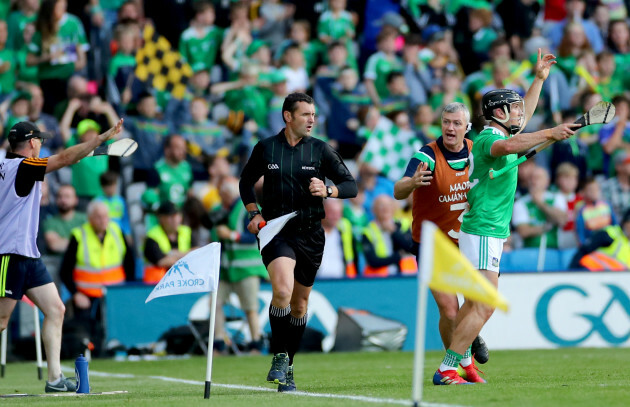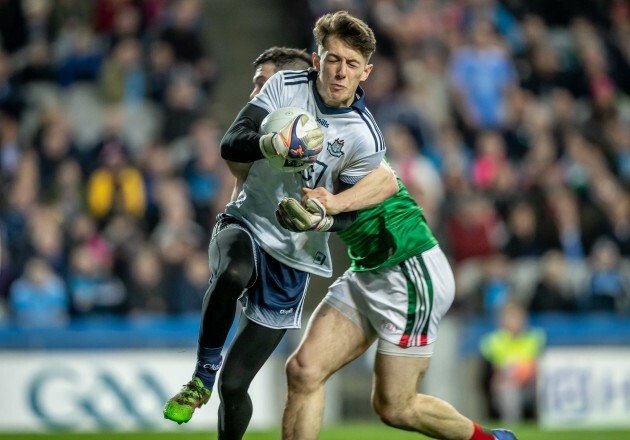Widening county eligibility, playing in the US and 7 other Congress motions with big implications
Congress is just two weeks away. Here’s what you need to know.
by Kevin O'BrienTHERE ARE A number of motions to be voted on at Congress later this month that have been well-flagged in recent weeks.

Two notable rule changes have been proposed for hurling: the introduction of the black card and two points for a converted sideline cut.
Then there’s the move to have the neutral round of Super 8s games played at venues outside of Croke Park, which would rule out the possibility of Dublin playing two games at HQ in the All-Ireland quarter-final phase.
But there are several other motions to be debated which have flown under the radar, yet promise to have wide-ranging implications if they are successful on 29 February.
1. Manager/captain challenge (Motion 2 – Limerick)
A rule that comes off the back of Limerick’s All-Ireland semi-final exit to Kilkenny last summer and the phantom 65 that wasn’t awarded in the last play of the game.
The motion states that either of the two managers or team captains may request for the referee to clarify if any of the officials “erred in making a decision in relation to the validity of a score or the awarding of a free/sideline ball/wide/45 or 65 or a square infringement.”
The referee may then consult Hawk-Eye over a disputed score or one of his officials about something he might have missed. Teams are limited to two failed requests each.
If it was in place for last year’s semi-final, Declan Hannon or John Kiely could have made a challenge on Darragh O’Donovan’s sideline that was blocked by Cillian Buckley but missed by the referee and his officials, which would have allowed Limerick a late chance to force extra-time.

2. No entry by team officials onto field of play (Motion 3 – Standing Committee on Playing Rules)
A straightforward motion that would forbid any team official entering the field of play. That includes maor uisce and hurley carriers.
The majority of county teams now employ a matchday ‘runner’ whose task is to relay tactical instructions to players on the field, a duty Jason Sherlock filled with Dublin in recent years.
It the motion is passed, only a team medical officer or authorised official would be given permission to enter the field to tend to an injured player.
3. No backpass to a goalkeeper from a kick-out in football (Motion 6 – Reheens, Kildare)
A player that receives a kick-out cannot pass the ball directly back to his goalkeeper.
The penalty is the awarding of a free to the opposition from the position the referee receives the pass. If the ‘keeper is inside the 13m line, then the free is from the 13m line opposite where he touched the ball.
This rule would make goalkeepers more reluctant to go short and encourage opponents to press up on kick-outs.

4. Only two players can talk to the referee (Motion 16 – Naomh Eanna, Wexford)
A motion which seeks to counteract dissent towards referees. A maximum of two players from each team would wear distinctive armbands. They’re the only players allowed to approach and address the referee in a courteous manner to question a decision. The referee must give a clear, definite and polite reply.
One team 0fficial would also wear the armband. They’d be allowed to approach the referee in a courteous manner before the game starts, at half-time or when it ends, but not during the game itself.
5. Widening rule on player eligibility (Motion 48 – Toormakeady, Mayo)

With potential ramifications for the club and county game, this motion seeks to widen the rule on player eligibility.
It extends the player’s eligibility to represent a club or county with an “other relevant connection” to include their legal guardians and not just parents.
It would also give Central Council the power “in exceptional circumstances” to decide if there is a relevant connection with a particular club or county “in accordance with policy adopted by Central Council.”
6. A player can declare for any county based on ‘other relevant connection’ (Motion 51 – Toormakeady, Mayo)
Following on from the last point, this motion would widen Central Council’s remit to approve a player to declare for any county they have an “other relevant connection” with.
Under the current rule, only 12 counties are allowed avail of this provision – Leitrim, Sligo, Longford, Carlow, Fermanagh, Kilkenny (football only), Laois, Cavan, Roscommon, Wicklow, Clare (football only), Offaly (football only) and Tipperary (football only).
This motion would see any county permitted to be considered in the “other relevant connection” category once it’s approved by Central Council (as stated in motion 48).
7. Inter-county players heading Stateside (Motion 52 – Longford)
At present, no player named on an inter-county championship list can register to play with a club in the USA in the same year.
This motion makes an exception, allowing players from counties competing in Tier 2 of football or Tiers 3, 4 and 5 in hurling to do so.
And here are two proposed changes to GAA competitions…
- Third level (Motion 40 - Fixtures Calendar Review Taskforce) - Sigerson Cup to be completed by the fifth Sunday of the year and Fitzgibbon Cup by the seventh Sunday of the year.
- Hurling structures (Motion 59 – Leinster Council) - No relegation in the Leinster SHC this season with the aim of having six teams for 2021 (as long as Kerry don’t win the Joe McDonagh Cup). Restructuring of tiers will see six teams also competing in the McDonagh, Christy Ring, Nicky Rackard and Lory Meagher Cups next year. All tiers will then see one team getting promoted and relegated thereafter.
Buy The42’s new book, Behind The Lines, here: